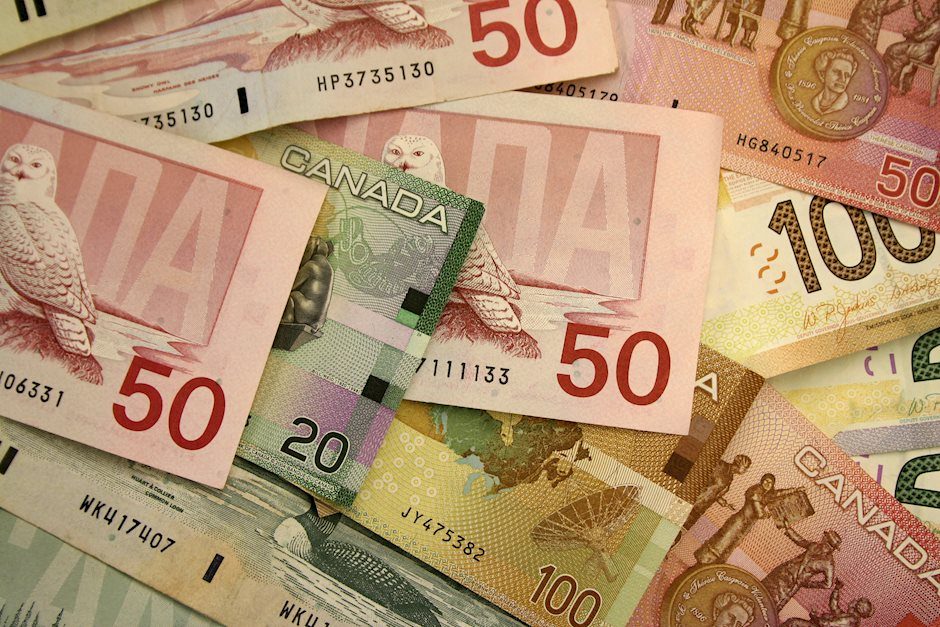USD/CAD remains on the defensive near 1.3600 ahead of US CPI data
- USD/CAD trades on a weaker note around 1.3615 in Thursday’s early Asian session.
- Fed’s Powell said the central bank will cut rates when ready, regardless of the political calendar.
- A rise in Canada's Unemployment Rate has prompted the BoC to consider cutting interest rates in July, ING analyst said.

The USD/CAD pair remains under selling pressure near 1.3615 during the early Asian session on Thursday. Meanwhile, the USD Index (DXY) extends its consolidation above the 105.00 hurdle as traders await the key US inflation report. The US Consumer Price Index (CPI) data for June is due on Thursday, along with the weekly Initial Jobless Claims and speeches by the Federal Reserve’s (Fed) Raphael Bostic.
Fed Chair Jerome Powell responded to questions before the House Financial Services Committee on Wednesday. Powell said that the central bank will make interest rate decisions based on the data, the incoming data, the evolving outlook, and the balance of risks, and not in consideration of political factors.
He further stated that the Fed won't wait until US inflation slows to its 2% target before it cuts interest rates. The probability of the Fed leaving the policy rate unchanged in September stood at nearly 25% following this event, according to the CME FedWatch Tool.
On the Loonie front, the decline of crude oil prices might undermine the commodity-linked Canadian Dollar (CAD) as Canada is the major crude oil exporter to the United States.
Furthermore, ING’s FX analyst Francesco Pesole said that a rise in the Canadian Unemployment rate has put a July Bank of Canada (BoC) rate cut on the table. The financial markets have priced in 16 basis points (bps) of easing for July.
Canadian Dollar FAQs
The key factors driving the Canadian Dollar (CAD) are the level of interest rates set by the Bank of Canada (BoC), the price of Oil, Canada’s largest export, the health of its economy, inflation and the Trade Balance, which is the difference between the value of Canada’s exports versus its imports. Other factors include market sentiment – whether investors are taking on more risky assets (risk-on) or seeking safe-havens (risk-off) – with risk-on being CAD-positive. As its largest trading partner, the health of the US economy is also a key factor influencing the Canadian Dollar.
The Bank of Canada (BoC) has a significant influence on the Canadian Dollar by setting the level of interest rates that banks can lend to one another. This influences the level of interest rates for everyone. The main goal of the BoC is to maintain inflation at 1-3% by adjusting interest rates up or down. Relatively higher interest rates tend to be positive for the CAD. The Bank of Canada can also use quantitative easing and tightening to influence credit conditions, with the former CAD-negative and the latter CAD-positive.
The price of Oil is a key factor impacting the value of the Canadian Dollar. Petroleum is Canada’s biggest export, so Oil price tends to have an immediate impact on the CAD value. Generally, if Oil price rises CAD also goes up, as aggregate demand for the currency increases. The opposite is the case if the price of Oil falls. Higher Oil prices also tend to result in a greater likelihood of a positive Trade Balance, which is also supportive of the CAD.
While inflation had always traditionally been thought of as a negative factor for a currency since it lowers the value of money, the opposite has actually been the case in modern times with the relaxation of cross-border capital controls. Higher inflation tends to lead central banks to put up interest rates which attracts more capital inflows from global investors seeking a lucrative place to keep their money. This increases demand for the local currency, which in Canada’s case is the Canadian Dollar.
Macroeconomic data releases gauge the health of the economy and can have an impact on the Canadian Dollar. Indicators such as GDP, Manufacturing and Services PMIs, employment, and consumer sentiment surveys can all influence the direction of the CAD. A strong economy is good for the Canadian Dollar. Not only does it attract more foreign investment but it may encourage the Bank of Canada to put up interest rates, leading to a stronger currency. If economic data is weak, however, the CAD is likely to fall.
Author

Lallalit Srijandorn
FXStreet
Lallalit Srijandorn is a Parisian at heart. She has lived in France since 2019 and now becomes a digital entrepreneur based in Paris and Bangkok.

















